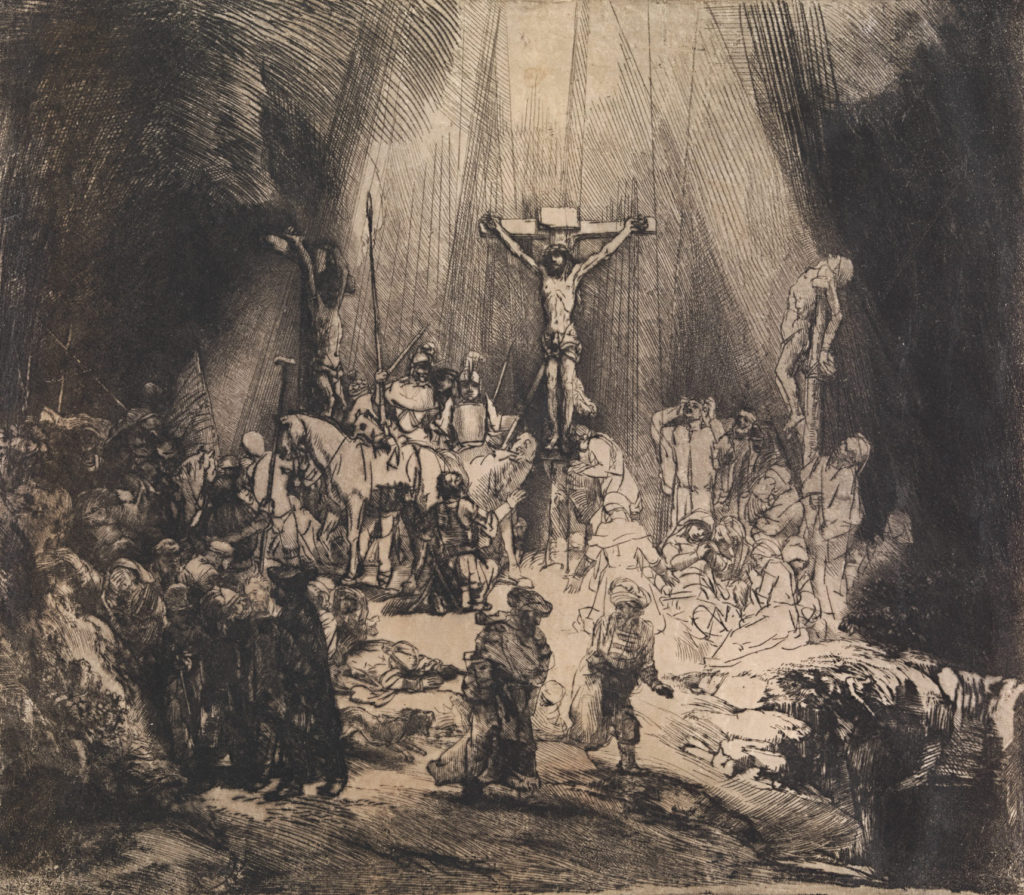Our Communal Mission: Understanding God as Word, Light, & Love

Roughly a month into our ministry together as a House of Brigid community here in Wexford and Dublin, it is good to continue to contextualize our mission here with what we’ve learned from our interactions with the people we’ve met and begun working alongside. Certainly conversations about ministry & outreach have been taking place starting with our orientation at Notre Dame in August, but to some extent these conversations were difficult to process because, personally speaking, I was not sure what it would feel like to be here. I didn’t know if I would be anxious meeting people or not, how it would smell and what the weather would feel like on my skin. I didn’t know how it would feel to live life at a different pace. Perhaps most importantly, I didn’t know how the people of Ireland would receive our presence and attempts to evangelize, nor how to best love them. If love is the purest and simplest calling of the Christian missionary, then I wish to strive to do it well. It was acutely this desire—to love well—that could not be predicted or realized while still in the states.
By the grace of God, our full community has arrived safely in Ireland and is beginning to live into our ministerial roles, and such a peace has settled within me, like a soft dew that cleanses those internal pangs that went unnoticed until freedom from them came to me. A weight truly lifted when our 7th member Maddie was admitted to the country; an emptiness was filled, a tension resolved.
A few days ago, the Dublin community took the train down to Wexford to surprise me on my birthday. It was the first time that our community has been all together here, and it is difficult to put into words exactly how it felt and what it meant that they came. To see the full group together—Shane, Katherine, Maddie, Clare, Kelly Anne, Kati, Andrew—filled me with a sense of both completeness and empowerment. When I am with these people, I can do the work of love that God is calling me to here. Their love and support has sustained me to offer those same things to others, and for this I am immensely grateful.
Love from this community is sustaining for me, but I do not wish to reduce our mission here to the phrase “love others.” This is perhaps the broadest and simplest way to describe our work, but it seems as though this simple concept might be explored in greater detail if we are to do it well. I continue to feel a pull to the words of the gospels and the witness of Christ’s life. Within these words and Christ’s example there is much nuance that we might consider as we seek to conform ourselves to him in our ministry. As a starting point, may we consider what it means that Christ comes to earth as fully God and fully man, to be among us as love, light, and word.
“In the beginning was the Word, and the Word was with God, and the Word was God. He was in the beginning with God. All things came to be through Him, and without him nothing came to be. What came to be through him was life, and this life was the light of the human race; the light shines in the darkness, and the darkness has not overcome it.” —John 1:1–5
If these words are true then they make an incredible demand on our intellectual faculties, namely that we reorient from a purely logical or rational approach to viewing the world and its activity in order to consider that there are truths which we might not know because our physical senses or cognitive faculties or linguistic devices are not (or not yet) capable of perceiving them. One striking assertion made in these opening verses of John’s gospel is the notion that all human ingenuity, creativity, and success as a species is due to either a first mover of sorts or some connection to a divine being. Who exactly this divine being is is not immediately clear from the context, but we might begin to understand a connection between ‘word’ or language and the divine. The implication at the level of the text is that God enters the world through language; the implication given the context of other gospels (i.e. Matthew & Luke, which begin with birth narratives of Christ) is that God enters the world in the form of a human infant, born as all women and men are, except without sin (c.f. Hebrews 4:15). If this is true, then we by our physical and physiological nature are intrinsically connected to the divine.
We also understand that the figure being described in this passage, entering the world as Word and God, also enters in the form of light, and combats the pressuring darkness of the world. What is this darkness that God becomes man to combat? One might seek a literal entity or concept to stand in for ‘darkness’ here, and might consequently suggest Evil, the absence of love, or Death, “the last enemy to be defeated’ (c.f. 1 Corinthians 15:26). However, the thoughtful or imaginative thinker may prefer to allow these terms of ‘light’ and ‘darkness’ to function in their primary context of imagery as opposed to reducing them to contrived parallels. Perceive the artistry of the gospel author’s writing in its original and beautiful form. There is a sense of mystery conveyed by playing with the imagery of light versus darkness; one can envision the earth covered in blackness or stagnancy, and the moment when light bursts into it, supplying our home with both warmth and clarity. Light entering the world is an image first presented in Genesis 1 when God speaks light and creation into being, and light burst from the star upon the birth of Christ in some synoptic accounts. Certainly in these opening words of John’s Gospel, it emerges as one of two imaginative ways of conceiving Christ’s arrival: Christ as light, Christ as word.
Haydn: Die Schöpfung – Im Anfange schuf Gott Himmel und Erde…Und der Geist Gottes schwebte…Und Gott sah das Licht
Anthony Rolfe Johnson, Barbara Bonney, Etc.; John Eliot Gardiner: English Baroque Soloists, Monteverdi Choir
Conceiving of Christ as light as described in this passage might allow us to perceive a connection in content to the first letter of John: “Now this is the message that we have heard from him and proclaim to you: God is light, and in him there is no darkness at all.” —1 John 1:5. Later on, the author of 1 John describes God in more practical, action-oriented terms: “Beloved, let us love one another, because love is of God; everyone who loves is begotten by God and knows God. Whoever is without love does not know God, for God is love.” —1 John 4:7–8. God is love. The God who enters the world as light and word, enters also as love, in fact, is love.
If this is true, then it seems a thoroughly practical exercise for us as professors of the Christian faith to strive to close the perception gap between God and love through various exercises. We might pause each time we intentionally act for the good of a community member and say “God is necessarily present here and now because I have loved,” and we might say the same in the inverse when a member of the community here loves us. The local communities in Wexford have already shown such incredible generosity to our group, and there is certainty of God’s presence in these interactions. There is a vibrancy and joy in the life-giving activity of sharing time, talent, and treasure, a fact which has become apparent to me from only a month’s-worth of interactions with the people of this country and town.
In conclusion, our mission is oriented toward love, and thus oriented toward God, who is love; we are connected to God through perceiving him as light, word, and love. Where, then, is the Catholic Church in this? I assert the Church is an aid in the process of love and knowing God because of the sacraments. “But if we walk in the light as he is in the light, then we have fellowship with one another, and the blood of his Son Jesus cleanses us from all sin.” —1 John 1:7. A continuation of an earlier-referenced passage, the imagery of sacrament is pervasive in this brief verse, for we see in ‘blood of his Son Jesus’ an allusion to the Eucharist, and in ‘cleanses us from all sin’ an allusion to the sacrament of reconciliation. Personal participation in the sacraments and external invitation to others is a portion of our responsibility here. As pilgrims sent on mission to a foreign country in the name of the gospel, light is the image we might ascribe to ourselves amidst the darkness, love is our activity, and word is our medium. May we, through personal prayer & devotion & humility, proclaim the gospel with both word and activity.
Glory be to our Lord and Savior Jesus Christ, who lives and reigns with You in the Unity of the Holy Spirit, One God, forever & ever. Amen.
2:13 – The riders charge; the music takes a stunning and beautiful turn.
2:42 – The light bursts forth from the horizon, blinding the foe and affording Gandalf and the Rohirrim the victory.

Rembrandt’s ‘Christ Crucified Between Two Thieves: The Three Crosses’; 1653
Courtesy of the Metropolitan Museum of Art.
Digital Photo File Name:DP321350.tif Online Publications Edited By Michelle Ma for TOAH 10_27_15
https://www.metmuseum.org/toah/works-of-art/41.1.31/
